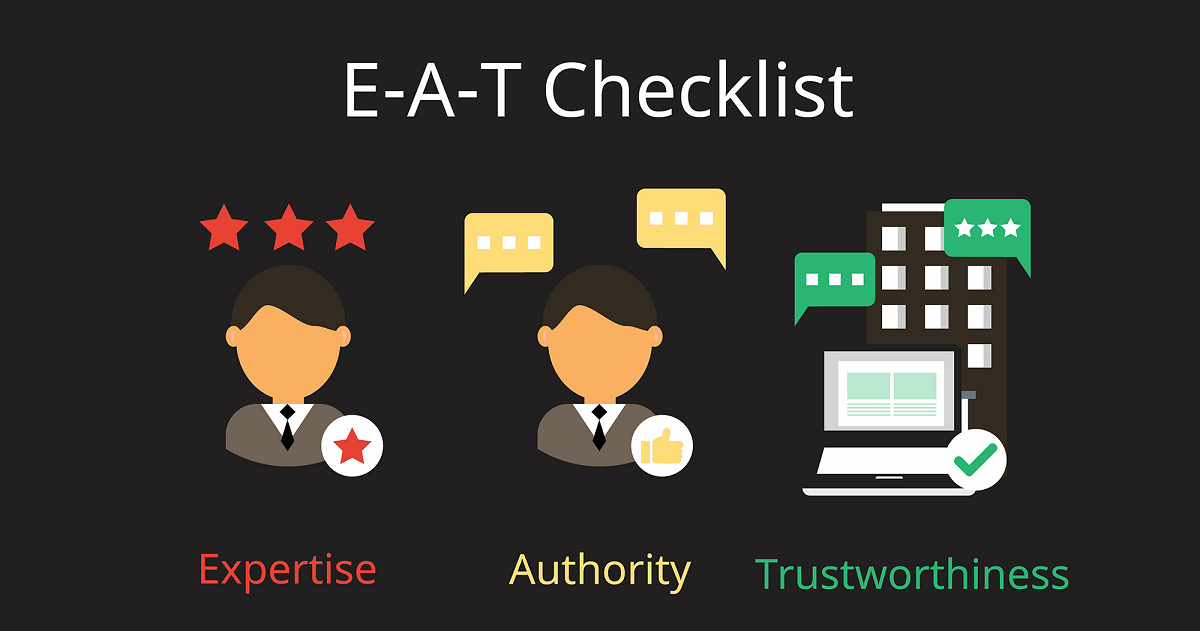BLOG
The SEO Checklist For New Website Launches

Launching a new website is an exciting endeavor, filled with possibilities and opportunities. However, amidst the thrill of a new digital venture, it's crucial not to overlook a critical component of online success: search engine optimization (SEO). In today's digital landscape, where competition for online visibility is fierce, having a well-optimized website is paramount.
SEO is the practice of optimizing your website to improve its visibility and ranking in search engine results pages (SERPs). A strong SEO strategy can help drive organic traffic to your site, increase brand visibility, and ultimately, drive conversions. For new websites, in particular, laying a solid SEO foundation from the start can set the stage for long-term success.
In this blog post, we'll provide you with a comprehensive SEO checklist for launching your new website. From pre-launch preparations to ongoing SEO efforts, we'll cover everything you need to know to ensure that your website is optimized for search engines. Whether you're a seasoned webmaster or a newcomer to the world of digital marketing, this checklist will serve as a valuable guide to help you navigate the complexities of SEO and set your website up for success. So, let's dive in and explore the key steps you need to take to optimize your new website for search engines.
Importance Of Starting With A Strong SEO Foundation
Starting with a strong SEO foundation is crucial for the success of any new website. SEO, or Search Engine Optimization, is the process of optimizing your website to rank higher in search engine results pages (SERPs) and drive organic traffic to your site. Here are several reasons why starting with a strong SEO foundation is important:
- Visibility and Ranking: A strong SEO foundation helps your website become more visible to search engines like Google, Bing, and Yahoo. By optimizing your website for relevant keywords, you increase the chances of ranking higher in search results, making it easier for potential customers to find you.
- User Experience: SEO is not just about optimizing for search engines; it's also about creating a positive user experience. A well-optimized website is easy to navigate, loads quickly, and provides valuable content to users, which can lead to higher engagement and conversions.
- Competitive Advantage: In today's competitive online landscape, having a strong SEO foundation can give you a competitive advantage. By outranking your competitors in search results, you can attract more traffic and customers to your website.
- Long-Term Growth: SEO is a long-term strategy that can provide sustainable growth for your website. By consistently optimizing your website and creating high-quality content, you can attract organic traffic for years to come.
- Cost-Effectiveness: Compared to traditional marketing methods, SEO is a cost-effective way to drive traffic to your website. Once you have established a strong SEO foundation, you can continue to attract organic traffic without having to spend a lot on advertising.
Overall, starting with a strong SEO foundation is essential for the success of your website. It can help you increase visibility, improve user experience, gain a competitive advantage, achieve long-term growth, and do so in a cost-effective manner.
Pre-Launch Preparation
- Keyword Research: Identify relevant keywords for your niche using tools like Google Keyword Planner, SEMrush, or Ahrefs. Use a mix of high-traffic and long-tail keywords to target your audience effectively.
- On-Page SEO: Optimize title tags, meta descriptions, and headers with relevant keywords. Create SEO-friendly URLs that are descriptive and include keywords. Ensure your website is mobile-friendly and has fast loading speed.
- Content Creation: Develop high-quality, relevant content that provides value to your audience. Include targeted keywords naturally within the content. Optimize images with alt tags and descriptive filenames.
- Competitor Analysis: Research your competitors' SEO strategies to identify opportunities and gaps in your own strategy. Look for keywords they are ranking for, as well as their content and backlinking strategies.
- Website Structure: Create a clear and organized website structure that is easy to navigate. Ensure all pages are easily accessible to users and search engines.
- Technical SEO: Set up an XML sitemap and submit it to search engines. Ensure your robots.txt file is properly configured to allow search engine crawlers. Check for any technical issues that could affect your website's SEO performance.
- Link Building: Start building backlinks from reputable websites in your niche. Consider guest posting, outreach campaigns, and directory submissions to build a strong backlink profile.
- Social Media Integration: Integrate social media sharing buttons on your website to encourage social sharing of your content. This can help increase your website's visibility and drive traffic.
- Local SEO: If your website has a physical location, optimize it for local SEO by including your business name, address, and phone number (NAP) on your website and in online directories.
- Testing and Optimization: Test your website's performance using tools like Google PageSpeed Insights and fix any issues that could affect user experience. Continuously optimize your website for better performance and SEO results.
Technical SEO
- Crawlability: Ensure that search engine bots can crawl your website easily. Use a robots.txt file to control which pages are crawled and include an XML sitemap to help search engines discover and index your content.
- Site Speed: A fast-loading website is important for both user experience and search engine rankings. Use tools like Google PageSpeed Insights to analyze and improve your site's speed.
- Mobile-Friendliness: With the increasing use of mobile devices, it's essential to have a mobile-friendly website. Use responsive design to ensure your site looks and functions well on all devices.
- Site Structure: Create a clear and logical site structure with well-organized navigation. Use descriptive URLs and create a hierarchy of pages to make it easier for users and search engines to navigate your site.
- Internal Linking: Use internal links to connect related content on your website. This helps search engines understand the structure of your site and can improve the indexing of your pages.
- Schema Markup: Implement schema markup to provide search engines with more information about your content. This can improve the visibility of your pages in search results and increase click-through rates.
- HTTPS: Secure your website with HTTPS to protect user data and improve your search engine rankings. Google considers HTTPS a ranking factor and may give preference to secure sites in search results.
- Fix Technical Issues: Monitor your website for technical issues like broken links, duplicate content, and crawl errors. Addressing these issues can improve your site's overall SEO performance.
Post-Launch Optimization
- Monitor Performance: Use tools like Google Analytics and Google Search Console to track website traffic, user behavior, and keyword rankings. Monitor key metrics like organic traffic, bounce rate, and conversions to identify areas for improvement.
- Fix Issues: Regularly check for and fix any technical issues that may arise, such as broken links, 404 errors, slow loading pages, and mobile responsiveness issues. These issues can negatively impact user experience and search engine rankings.
- Content Promotion: Share new content on social media channels and engage with your audience to encourage sharing. This can help increase visibility and drive traffic to your website.
- Link Building: Start building backlinks from reputable websites to improve your website's authority and ranking in search results. Guest posting, outreach campaigns, and directory submissions can be effective strategies for link building.
- Regular Content Updates: Update and add new content regularly to keep your website fresh and relevant. This can help improve your website's visibility in search results and attract more organic traffic.
- Monitor and Adjust: Continuously monitor website performance and user behavior to identify areas for improvement. Adjust your SEO strategies accordingly to ensure optimal performance.
- Stay Informed: Stay updated with the latest SEO trends and best practices to keep your website optimized for search engines. Attend webinars, read industry blogs, and participate in forums to stay informed.
Ongoing SEO Efforts
- Regular Content Updates: Continuously update and add new content to your website to keep it fresh and relevant. This can include blog posts, articles, videos, infographics, and other types of content that provide value to your audience.
- Monitor and Adjust: Regularly monitor your website's performance using tools like Google Analytics and Google Search Console. Analyze data such as traffic sources, user behavior, and keyword rankings to identify areas for improvement and adjust your SEO strategies accordingly.
- Technical SEO Maintenance: Regularly audit your website for technical issues that could affect its performance in search engines. This includes checking for broken links, 404 errors, duplicate content, and other issues that could negatively impact your SEO efforts.
- Link Building: Continue to build high-quality backlinks to your website from reputable sources. This can include guest posting, outreach campaigns, and other link building strategies to increase your website's authority and improve its ranking in search results.
- Stay Informed: Stay updated with the latest SEO trends and best practices. Search engine algorithms are constantly evolving, so it's important to stay informed and adapt your SEO strategies accordingly.
- Local SEO: If your business targets local customers, continue to optimize your website for local search. This includes optimizing your Google My Business listing, obtaining local citations, and encouraging customer reviews.
- Mobile Optimization: With the increasing use of mobile devices, ensure that your website is mobile-friendly and optimized for mobile search. This can improve your website's visibility in mobile search results and provide a better user experience for mobile users.
Starting with a strong SEO foundation is crucial for the success of any new website. SEO lays the groundwork for increased visibility, higher rankings in search engine results, and ultimately, more organic traffic. By focusing on keyword research, on-page SEO, and technical aspects like website structure and mobile optimization, you can create a solid foundation that will help your website attract more visitors and achieve its goals.
However, SEO is not a one-time task—it requires ongoing effort and maintenance. Regularly updating content, monitoring performance, and staying informed about the latest SEO trends are key to sustaining and improving your website's search engine visibility over time.
In conclusion, by following the SEO checklist for new website launches and committing to ongoing SEO efforts, you can set your website up for long-term success in the competitive online landscape.
Are you launching a new website? Don't overlook the importance of SEO! Implement the strategies outlined in this checklist to ensure your website has a strong SEO foundation from day one. Need help with your SEO efforts? Contact us today to learn how our team of experts can help you optimize your website for search engines and attract more organic traffic.











